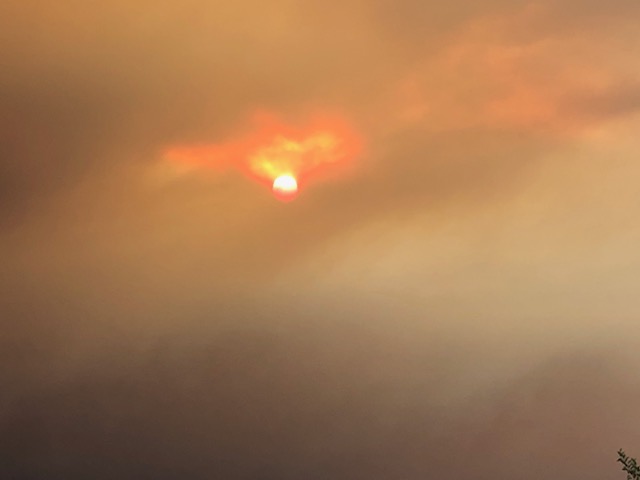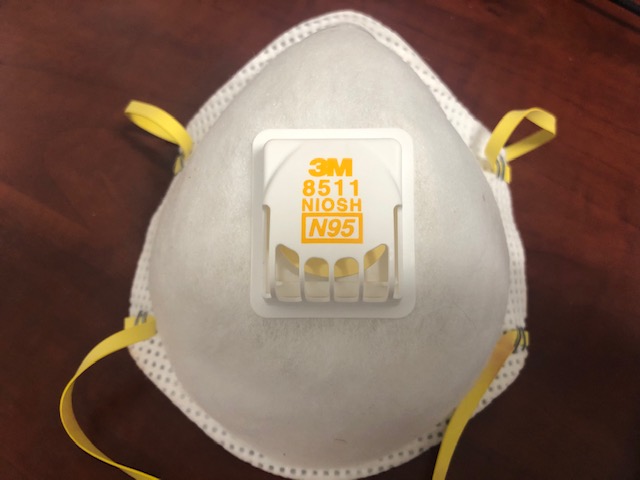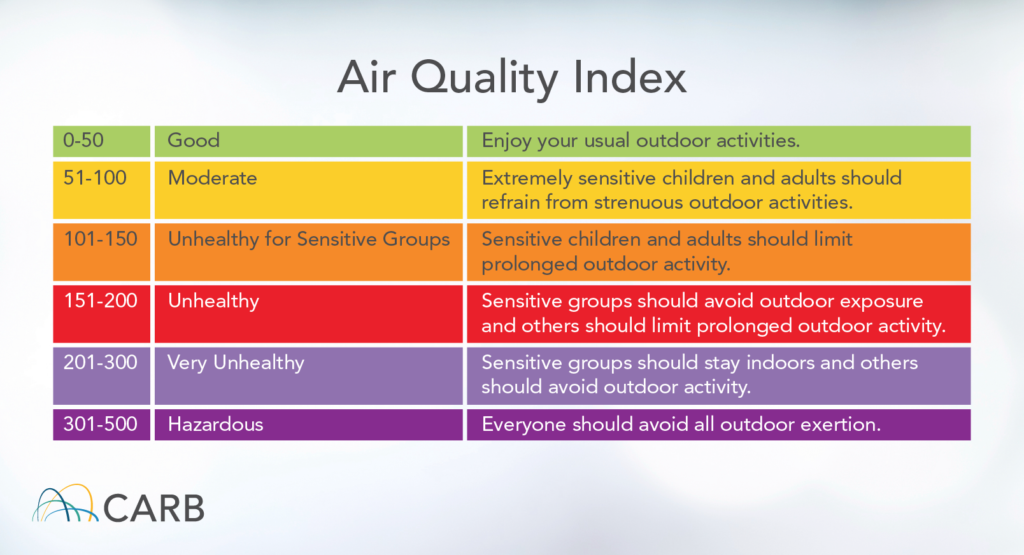
If you have Parkinson’s disease and live in one of the areas currently being hit by wildfires you are probably having problems breathing due to poor air quality. I have been evacuated from my home and am living in the Rebel Fit Club gym. Luckily, I had a place to go to. Unfortunately, many around us have lost their homes.
As we were packing up our house the fire was only a mile away. You can imagine how hard it was to breathe. We couldn’t see across our property because the smoke was so bad. Even though I was wearing a surgical mask and bandana, I felt like I was being suffocated. My husband was able to find a N95 mask he had bought years ago for wood working. As soon as I put it on, I instantly felt a difference. There was no difference in the air quality, but the particles weren’t getting in my lungs.
How does fire smoke damage the respiratory system?
Wildfire smoke is composed of particles and gases, which come in all sizes. Timber is burning, but there are also toxins in the air from burning buildings, power lines, solvents, and cars. Wildfires produce a range of harmful air pollutants, from known cancer-causing substances to particles that can increase the risk of heart attack or stroke.
Do ordinary face coverings provide enough protection from fire smoke?
Using cloth masks can help a little, but they are not effective at screening out particles. N95 masks are made to filter out smaller particles. However, this type of mask is needed for first responders for COVID, so theirs is currently limited access to them.

Masks only work if they seal around your face and the contours of your nose and chin. If the mask does not fit over your face correctly, it doesn’t matter what kind of mask you wear because the air will go around the edges.
How do you know if the air is too bad to go outside?

The Air Quality Index is a color-coded indicator that considers multiple pollutants and gives you a composite number on air quality in your area. Go to www.AirNow.gov. The AQMD has a color-coded ranking for regional air quality.
Tempted to exercise outdoors? Think again.
If you can smell it or see it, that’s an indicator that you shouldn’t exercise outdoors, especially if you have Parkinson’s.
There are several negative health problems associated with exposure to particles and gases that begin with the lungs and respiratory system and extend to most other organ systems in the body. Exercise indoors instead.
Here are a few recommendations to stay safe:
- Stay inside. Close windows or use air conditioners (if you have them) with the intake closed. Also, run a high efficiency particulate air filter (HEPA).
- If it is too hot to stay indoors with the windows closed, find a clean-air space, or stay with a friend who has air conditioning.
- Do not use anything that burns, like candles or gas stoves.
- Refrain from vacuuming or activities that stir up dust.
- Most non-medical grade masks won’t protect lungs from the fine particulates of wildfire smoke outdoors. Stay indoors if you can.
- Asthma sufferers’ or individuals with other respiratory problems should follow their breathing management plans or talk to their doctors.
- If you spend time in a vehicle, turn the air conditioning on recirculate.
- Avoid outdoor activities, especially exercise, when air quality is unhealthy and hazardous.
Take care of yourself by staying indoors, getting adequate rest, sleep, water, foods, and try to keep a positive attitude.
Coach Kimberly
For more information:
- Effective Masks: See the Respirator Fact Sheet provided by CDC’s National Institute for Occupational Safety and Health.
- Wild Fire Smoke Facts: www.arb.ca.gov/protecting-yourself-wildfire-smoke